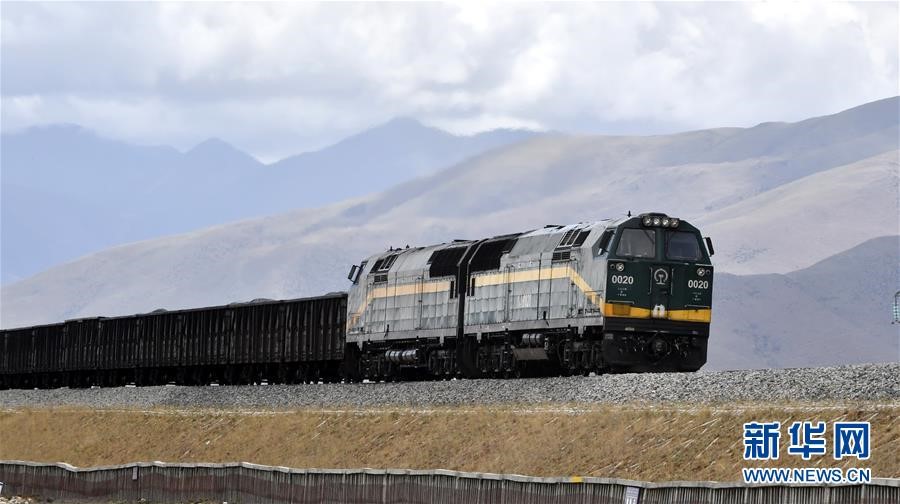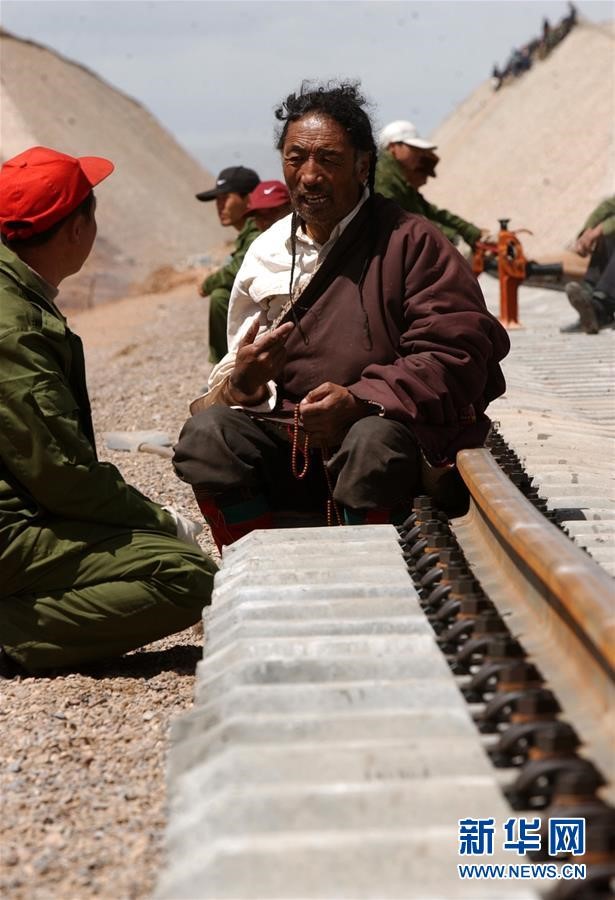In 2006, with the opening of the Golmud-Lhasa section of the Qinghai-Tibet Railway, I came to Tanggula Mountain at the age of 24 like a railroad doctor.
Over the years, the most obvious mark that time has left on me is my tanned face.
The railway traverses thousands of miles of permafrost.

A train rides the grasslands in northern Tibet. (Photos: Xinhua)
There was much maintenance and reinforcement work needed that year on the line.
To complete the task as soon as possible, my colleagues and I worked overtime.
We ate steamed buns when we were hungry, and used snow as a drink when thirsty. We worked more than 10 hours a day.
When I went back at night, my hands were so swollen that I couldn’t hold the chopsticks.
The maintenance of a railway lines on frozen plateau soil is a worldwide problem.
The melting and expansion of frozen soil affects the safety of the line.
The primary task of road maintenance workers is to closely monitor the impact of changes in temperature, humidity and other meteorological factors on the frozen soil so as to find and eliminate problems at any time.
Under special conditions, it is even more important to achieve zero errors. Only railway safety can make my colleagues and me feel at ease.

A villager talks to a railway builder in 2004.
I am responsible for the area from Wangkun Station to Hoh Xil Station on the Qinghai-Tibet Railway. The distance between them is 116 kilometers.
I have to check at least twice a month and walk it every time. After a month, it is normal to toss away two pairs of shoes.
I still remember that in early 2014, there was a sudden blizzard in the Tanggula area of the Qinghai-Tibet Railway, and certain sections were found to be buried in snow. After receiving the danger alert, my colleagues and I coordinated the snow removal and work tools.
We rushed to the site and engaged in repair work.
We eliminated the danger, only to realize sweat had soaked our clothes.
The harder the work, the more innovative we strive to be.
In the past 14 years, my colleagues and I have successively completed the refurbishment of small pits in high-altitude areas, improved the efficiency of checking line equipment and treating line issues, and provided solid support to maintain the road.
(The author Yu Benfan is the secretary of the Communist Party of China branch of the Wangkun Line Workshop of the Golmud Work Section of the China Railway Qinghai-Tibet Group Co., Ltd. This story is compiled by Jia Fengfeng, translated by Luo Meiqi and edited by Zhang Jian)


